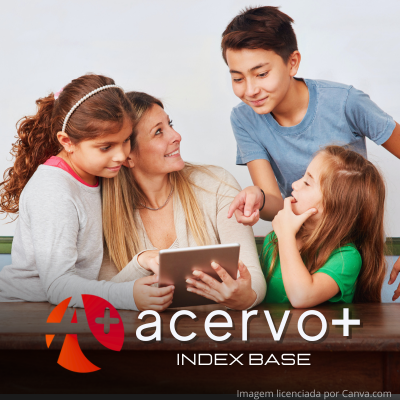Jogos digitais no contexto do letramento em saúde
##plugins.themes.bootstrap3.article.main##
Resumo
Objetivo: Revisar a literatura sobre a utilização dos jogos digitais (JD) no contexto do Letramento em Saúde (LS). Revisão bibliográfica: O LS é um importante determinante da saúde e um objetivo central para a promoção da saúde pública, podendo ser realizado através de ferramentas, para capacitar os indivíduos na tomada de decisões ativas e informadas relacionadas à saúde, sendo fundamental para reduzir as desigualdades nesta área. Os JD são adequados para oferecer experiências instrucionais ativas e de resposta imediata, sendo considerados ferramentas importantes para o LS. Acredita-se que a aprendizagem baseada em JD é mais envolvente, resultando numa experiência de aprendizagem mais positiva que motiva o aprendizado. A maioria dos artigos revisados concluiu que os JD (com a sua natureza altamente interativa) podem tornar a aprendizagem mais interessante, envolvente e agradável, fazendo com que os jogadores avaliem a experiência de aprendizagem de forma mais positiva e aumentando a sua motivação intrínseca para aprender. Considerações finais: Os JD têm um valor educativo significativo, particularmente na área do LS e do empoderamento, tanto para as crianças, adolescentes e adultos. Apresentam-se como uma tecnologia educativa alternativa para acessar, avaliar, compreender e aplicar as informações em saúde contidas nos jogos.
##plugins.themes.bootstrap3.article.details##
Copyright © | Todos os direitos reservados.
A revista detém os direitos autorais exclusivos de publicação deste artigo nos termos da lei 9610/98.
Reprodução parcial
É livre o uso de partes do texto, figuras e questionário do artigo, sendo obrigatória a citação dos autores e revista.
Reprodução total
É expressamente proibida, devendo ser autorizada pela revista.
Referências
2. AGHAZADEH S, et al. Integrating health literacy into core curriculum: A teacher-driven pilot initiative for second graders. Journal of School Health, 2020; 90(8): 585- 593.
3. BOKAYEV B, et al. Distance learning in Kazakhstan: estimating parents’ satisfaction of educational quality during the coronavirus. Technology, Pedagogy and Education, 2021; 30(1): 1–13.
4. CASSIE J. Don’t split the party: Using games to enhance social-emotional learning strategies. In Teaching in the game-based classroom. Eye on Education, 2021; 114-120.
5. CEJUDO J, et al. Promoting Social and Emotional Learning and Subjective Well-Being: Impact of the "Aislados" Intervention Program in Adolescents. International Journal of Environmental Research and Public Health, 2020; 17(2): 609.
6. CHOUKOU MA, et al. COVID-19 infodemic and digital health literacy in vulnerable populations: a scoping review. Digital Health, 2022; 8: 1-13.
7. FAVALE T, et al. Campus traffic and eLearning during COVID-19 pandemic. Computer Network, 2020; 176: 107290.
8. HARTT M, et al. Game on: exploring the effectiveness of game- based learning. Planning Practice & Research, 2020; 35(5): 589-604.
9. HELSPER EJ e SMAHEL D. Excessive internet use by young Europeans: psychological vulnerability and digital literacy? Information, Communication & Society, 2020; 23(9): 1255-1273.
10. JAFARI A, et al. The status of health literacy in students aged 6 to 18 old years: A systematic review study. Iran Journal of Public Health, 2021; 50(3): 448-458.
11. JANAKIRAMAN S, et al. Effectiveness of digital games in producing environmentally friendly attitudes and behaviors: A mixed methods study. Computers & Education, 2021; 160: 104043.
12. KNISEL E, et al. Promotion of elementary school students’ health literacy. International Journal of Environmental Research of Public Health, 2020; 24(17): 1-15.
13. LAZES PM. Simulation gaming in health education. The Handbook of Health Education. Germantown, MD: Aspen Systems Corporation; 1979; 175-193.
14. NARMADITYA BS, et al. Blended synchronous learning and students’ critical thinking ability: lesson from covid-19. Journal Pendidikan Bisnis dan Manajemen, 2020; 6(3): 1-15.
15. NUTBEAM D e MCGILL B. Improving health literacy in clinical and community populations. International handbook of health literacy: Research, practice and policy across the life-span (pp. 219–230). Policy Press. 2019.
16. NUTBEAM D e LLOYD JE. Understanding and responding to health literacy as a social determinant of health. Annual Review of Public Health, 2021; 42(1): 159-173.
17. PALLAVICINI F, et al. Video games for well-being: A systematic review on the application of computer games for cognitive and emotional training in the adult population. Frontiers in Psychology, 2018; 9: 21-27.
18. RONIMUS M, et al. Supporting struggling readers with digital game-based learning. Educational Technology Research and Development, 2019; 67: 639-663
19. SABIRLI ZE e ÇOKLAR AN. The effect of educational digital games on education, motivation and attitudes of elementary school students against course Access. World Journal on Educational Technology, 2020; 12(4): 325-338.
20. SALEME P, et al. Prosocial digital games for youth: A systematic review of interventions.
Computers in Human Behavior Reports, 2020; 2(100039): 1-16.
21. SALOVEY P e MAYER JD. Emotional intelligence. Imagination, Cognition and Personality, 1990; 9: 185-211.
22. SCHAEFFER D, et al. Health literacy in Germany. Deutsches Ärzteblatt International, 2021; 118(4): 1-10.
23. SCHILLINGER D. Social determinants, health literacy, and disparities: intersections and controversies. Health Literacy Research and Practice, 2021; 5(3): e233-e243.
24. SHOSHANI A, et al. Video games and close relations: Attachment and empathy as predictors of children’s and adolescents’ video game social play and socio-emotional functioning. Computers in Human Behavior, 2021; 114: 1-12.
25. SYKES S e WILLS J. Critical health literacy for the marginalised: Empirical findings. International handbook of health literacy: Research, practice and policy across the life-span (pp. 167–178). Policy Press. 2019.
26. TAY J, et al. Designing digital game-based learning for professional upskilling: a systematic literature review. Computers & Education, 2022; 2: 104518.
27. TOH W. The player experience and design implications of narrative games. International Journal of Human-Computer Interaction, 2022; 39(3): 1-28.
28. VIDERGOR HE. Effects of digital escape room on gameful experience, collaboration, and motivation of elementary school students. Computers & Education, 2021; 166: 104156.
29. WORLD HEALTH ORGANIZATION (WHO). Health literacy toolkit for low- and middle-income countries - A series of information sheets to empower communities and strengthen health systems. 2014.
30. WORLD HEALTH ORGANIZATION (WHO). Shanghai declaration on promoting health in the 2030 Agenda for sustainable development. Health Promotion International, 2017; 32(1): 7-8.
31. YUSTIKA GP e ISWATI S. Digital Literacy in Formal Online Education: A Short Review. Dinamika Pendidikan, 2020; 15(1): 66-76.

